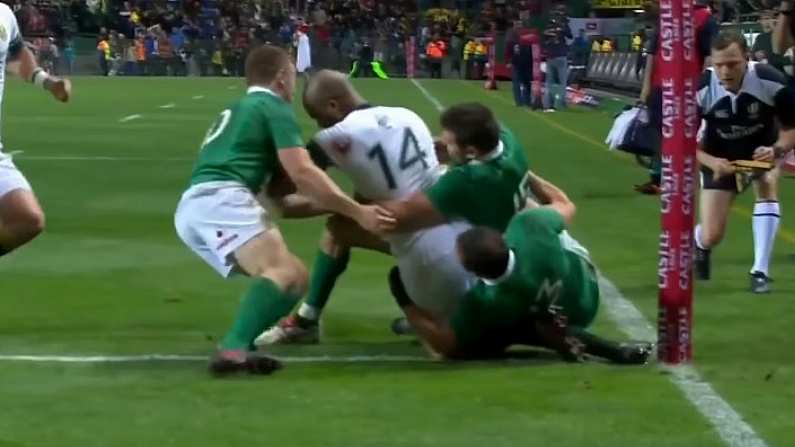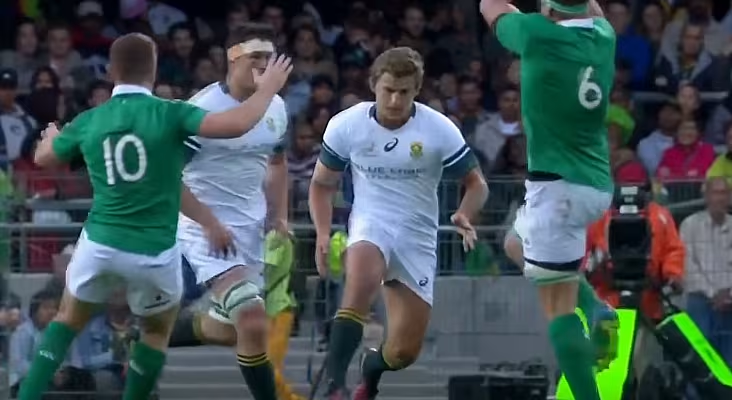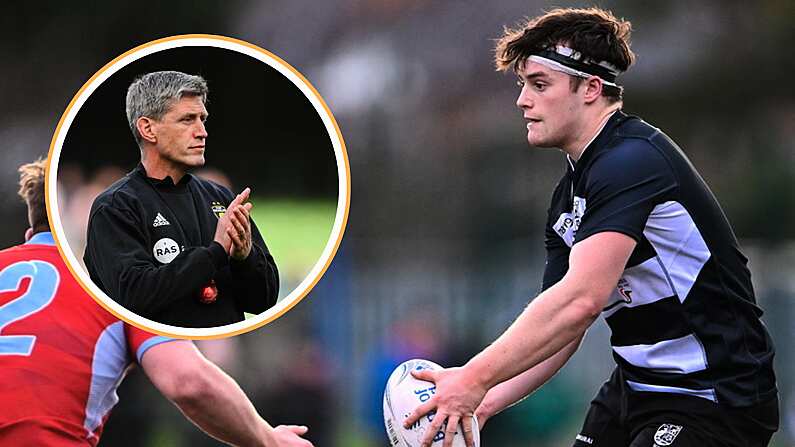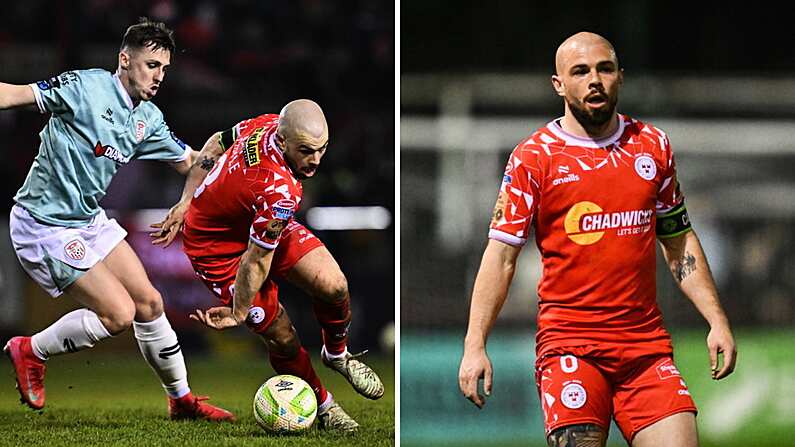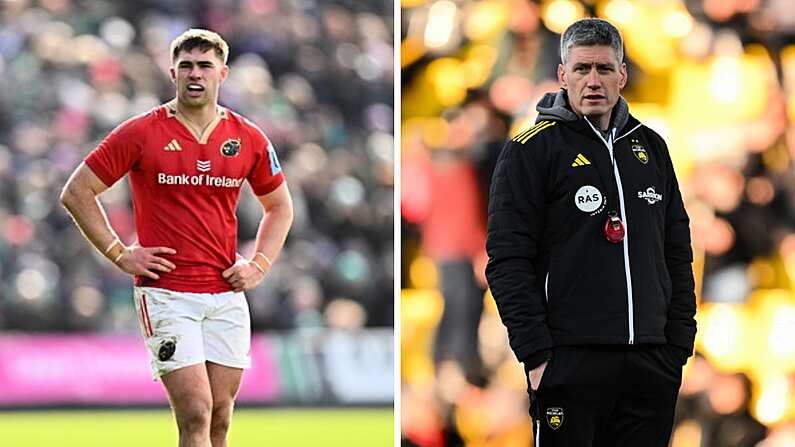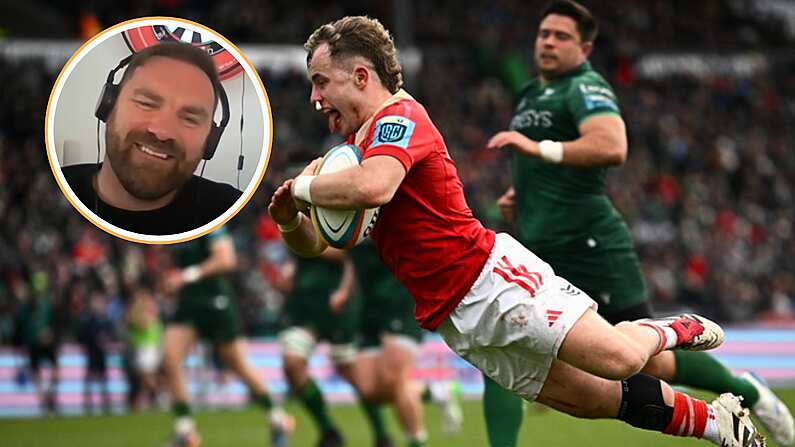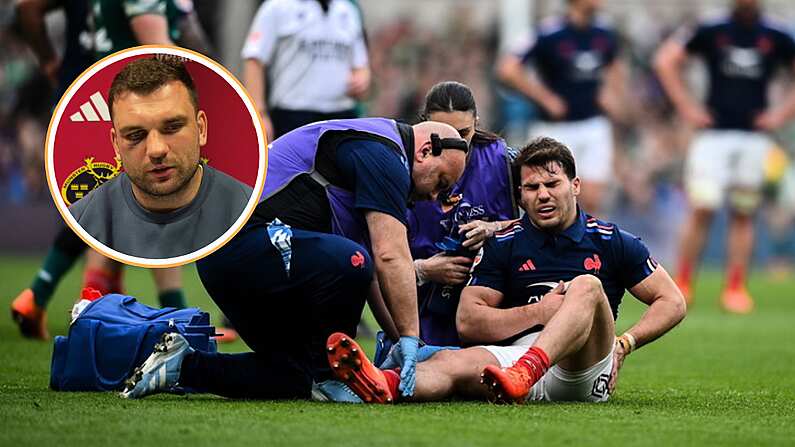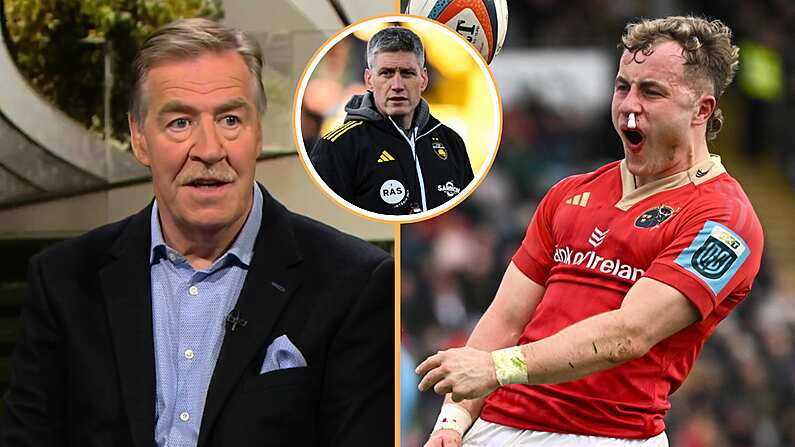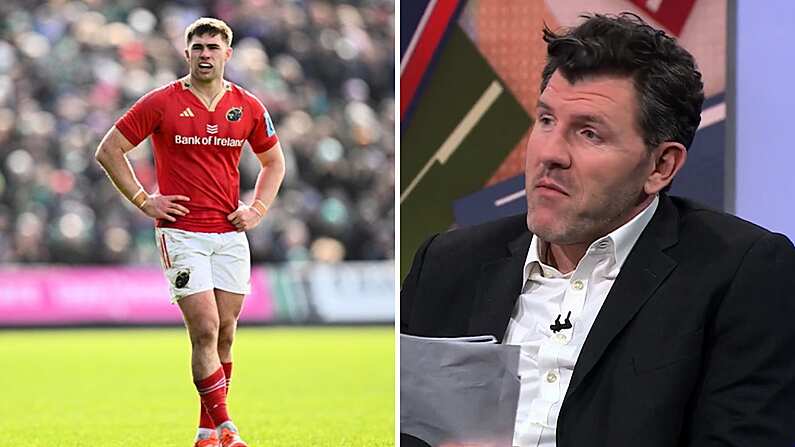Andy Farrell’s fingerprints were all over Ireland’s stoic performance at Newlands last weekend but can this new aggression he has infused into the Irish defence withstand a barrage from Springboks baying for blood?
You may have read on these pages last week that we were quite intrigued by what changes Ireland’s new defence coach Andy Farrell might bring to Joe Schmidt’s charges and, after the first 80 minutes of evidence anyway, it appears that the former English coach is going to prove to be an inspired addition to the Irish backroom staff.
Ireland’s increased aggression in defence and fearsome work at the breakdown was already noticeably superior last weekend to what we saw during the less-than-impressive Six Nations campaign earlier this year.
Ireland choked South Africa out wide, an area previously a source of Irish defensive frailty.
Farrell has built a reputation as one of the soundest defensive minds in the game, even though his services weren’t required in Eddie Jones’ new England setup. Farrell’s fondness for increased speed in the defensive line was immediately apparent within the first few minutes as the Irish defence pushed up against the South Africans at every opportunity, continually forcing them into errors.
It was this defensive line speed which led to CJ Stander’s ill-fated charge down of Pat Lambie which ended both of their matches.
Paddy Jackson, CJ Stander and Jordi Murphy (out of shot) showcasing Ireland's defensive line speed in the incident which led to Stander's dismissal.
While it seemed like a disaster at the time, with the benefit of hindsight Farrell couldn’t have wished for a sterner test of the new defensive policy than he got on Saturday, though we suspect that this wasn’t at the forefront of his mind when Mathieu Raynal raised his red card in the direction of Munster’s South African import just 22 minutes into the game.
The 14 remaining Irishmen (and of course, it was 13 for ten minutes) had no option but to front up to the incredibly physical challenge that lay in front of them and, in one of those strange situations that occasionally happens in sport, it was this adversity which proved to be the motivation for the performance.
Andrew Trimble leaves Ireland's defensive line to blitz Elton Jantjies, forcing him into a passing error.
You would wonder how the Ireland team of just a few months ago would have coped playing a test match against opponents of this calibre with one man less on the field. Listless performances in the spring suggest that it wouldn’t have been pretty but for Andy Farrell, the only new variable in the Irish coaching equation.
The side Joe Schmidt has selected for the second test at Ellis Park on Saturday says a lot about his strategic thinking. His selections for Saturday suggest that the Kiwi coach thinks the game will be won or lost in the battle of the big men and has named his side accordingly.
Rory Best and Devin Toner combine to turn the ball over on their own line.
CJ Stander’s suspension means that Iain Henderson, so effective last weekend alongside Devin Toner, moves to 6 and inherits the role of primary ball carrier where he should have a little more daylight to operate within. His seven carries last weekend were crucial, though mostly had to be launched into areas thick with South African defenders. The Ulsterman will relish the extra space afforded to him by the positional change.
Perhaps the most talked-about change of all was the inclusion of South African born lock Quinn Roux ahead of his Connacht colleague Ultan Dillane in the second row. With Roux the only natural tight head lock in the squad, Schmidt’s thinking is influenced by Mike Ross’s absence in the scrum and a desire to give Tadhg Furlong a little extra muscle to help deal with ‘The Beast’ Tendai Mtawarira at scrum time.
Rhys Ruddock’s selection over Jordi Murphy at #7 will provide even more ballast to a pack who mauled so efficiently in the first test, another change which would meet with Andy Farrell’s approval.
The Irish wings have an added responsibility in the Farrell regime. Here Andrew Trimble combines with Paddy Jackson to snuff out a South African attack.
Allister Coetzee and his team have their backs firmly to the wall ahead of Saturday’s match. A second successive defeat to the tourists, at their spiritual home of Ellis Park this time, could establish an unwelcome atmosphere early in Coetzee’s career which could ultimately prove impossible to overcome for a nation so steeped in rugby success but how do you even begin to correct the errors that were apparent in their display?
It’s likely that he will ask his players to redouble their efforts to not give the Irish an inch, rather than attempting to establish new tactical philosophies. With Ellis Park being more than 1,800 meters above sea level, South Africa traditionally have a fitness advantage at matches played there so they will be aware that the longer the game goes on, the more tired the Irish will become. They will look to take the Irish into deep waters late in the match and drown them.
Whichever way you look at this, it has all the hallmarks of an intensely physical test and it’s one that South Africa cannot afford to lose. The concept of South African pride is far more important to Springbok rugby than the outcome of a test series but both of things are on the line for them on Saturday. Expect them to play like they realise this.
Ireland, though, will have taken immense pride themselves from their performance last weekend and this time around, armed with a full XV and a rejuvenated defensive policy, will look to twist the knife further into South African hearts.
It will be fascinating to see if Joe Schmidt and Andy Farrell can stem the Springbok tide.
SEE MORE: The Irish Starting XV For Second Test Against South Africa


